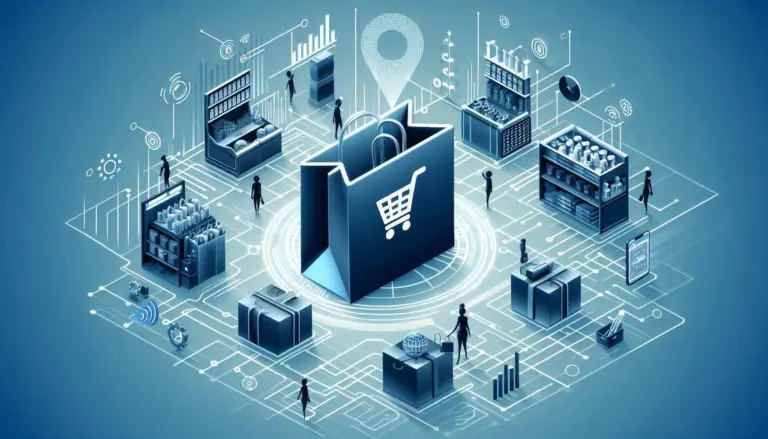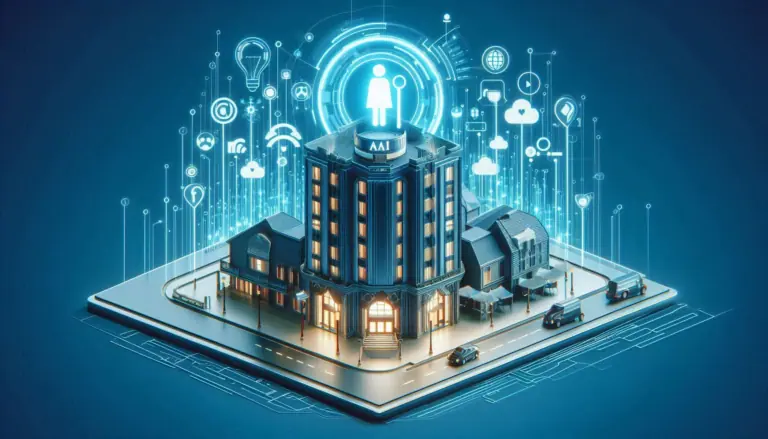AI in HR: Improving Hiring Efficiency and Quality

Written By:
Last Updated Date:
TL;DR
Jenna, the HR director at a fast-growing tech startup, faced an overwhelming number of job applications. Inspired by Unilever’s success with AI in HR, she implemented AI tools, resulting in a 75% reduction in hiring time and significantly improved hire quality. AI automated tedious tasks, provided data-driven insights, and allowed her team to focus on strategic initiatives. This HR transformation revolutionized recruitment, enhanced employee engagement, and enabled scalable, efficient solutions for businesses of all sizes.
Key Takeaways
- Streamlined Recruitment Process: AI tools significantly enhance hiring efficiency by automating resume screening, initial interviews, and matching candidates to job descriptions. This results in a 75% reduction in hiring time and improves the quality of hires, as demonstrated by Jenna’s experience at her tech startup.
- Data-Driven Decision Making: AI integration in HR provides valuable insights through data analysis, allowing for more informed and unbiased hiring decisions. This not only improves the quality of hires but also enhances overall HR efficiency by enabling the team to focus on strategic initiatives.
- Enhanced Employee Engagement and Experience: Beyond recruitment, AI personalizes onboarding and engagement processes, continuously monitors employee satisfaction, and helps create a more productive and satisfying work environment. This leads to higher retention rates and better overall performance.
Jenna’s AI Revolution: Mastering Recruitment Challenges
Meet Jenna, the Human Resources director at a fast-growing tech startup. With the company expanding rapidly, her inbox was flooded with job applications, making it impossible to keep up. She faced a daunting pile of resumes and cover letters daily, trying to identify the best candidates for various roles. Top candidates were slipping through the cracks, and her team was thin, unable to manage the overwhelming workload. Frustrated and overwhelmed, Jenna knew she needed a solution to maintain the quality of hires while scaling up the recruitment process.
Unilever’s AI Success: A Blueprint for HR Innovation
During a professional networking event, Jenna heard about Unilever’s remarkable transformation in their recruitment process. Faced with similar challenges, Unilever had integrated AI-powered HR tools into its recruitment process. They used AI to screen resumes, conduct preliminary interviews, and analyze video interviews, significantly streamlining their hiring operations. The result? A 75% reduction in hiring time and higher quality hires. This success story resonated with Jenna, offering a glimmer of hope for her recruitment woes.
Motivated by Unilever’s success, Jenna began researching AI-powered HR solutions. She discovered various tools designed to automate different aspects of the recruitment process. After careful evaluation, she selected a suite of AI tools tailored to her startup’s needs. The implementation phase was challenging, requiring training and adjustments to existing workflows, but Jenna was determined to see it through.
AI Empowerment: Jenna’s HR Transformation Unveiled
The impact of integrating AI into her HR operations was immediate and transformative. The AI tools automated tedious tasks such as resume screening and preliminary interview scheduling, freeing Jenna and her team to focus on strategic initiatives. The data-driven insights provided by the AI tools allowed them to make more informed decisions, improving the quality of hires. The AI system even analyzed video interviews, identifying key competencies and matching candidates with the company’s requirements more accurately.
Additionally, the AI tools helped maintain a consistent and unbiased approach to candidate evaluation, ensuring a fairer selection process. This improvement in the recruitment process enhanced the quality of new hires and boosted the overall efficiency of the HR department.
Jenna’s story is a testament to the transformative power of AI in Human Resources. By embracing AI technology, she overcame the challenges of rapid company growth and an overwhelming recruitment workload. Her AI integration’s success alleviated immediate pressures and positioned her HR department for future growth and scalability. Jenna’s experience highlights the potential of AI to revolutionize HR practices, making them more efficient, data-driven, and effective in attracting and retaining top talent.
The Power of AI in Talent Acquisition

Enhancing Recruitment Efficiency with AI Tools
Imagine a world where the recruitment process is streamlined, saving time and resources while ensuring the best talent is hired. AI in Human Resources is making this a reality. AI tools enhance recruitment efficiency by automating resume screening, matching candidates to job descriptions, and conducting initial interviews.
Improving Hire Quality with Data-Driven Insights
This speeds up the hiring process and improves hire quality by leveraging data-driven insights to match candidates to the right roles. AI-powered tools are revolutionizing talent acquisition by enhancing efficiency and effectiveness in sourcing, screening, interviewing, and engaging with potential candidates. Artificial Intelligence in Human Resource Management helps make unbiased resume screening and predictive analytics to identify top candidates based on historical hiring data.
Real-World Applications: JP Morgan Chase
For instance, companies like JP Morgan Chase hire thousands of employees weekly. They use AI to streamline their selection process. AI can pull relevant information from resumes, such as skills, certifications, and previous experiences, and use algorithms to match these with job requirements, scoring candidates and providing recruiters with top suggestions. This automation reduces biases, ensures a fairer selection process, and allows HR professionals to focus on strategic aspects of recruitment.
Enhancing Candidate Experience with AI-Driven Processes
AI-driven recruitment processes can also create a more engaging candidate experience. Automated communication tools keep applicants informed throughout the hiring process, reducing the uncertainty and anxiety often associated with job hunting. Additionally, AI can personalize interactions, tailoring messages and feedback to individual candidates, which enhances their perception of the company.
Enhancing Employee Engagement and Feedback
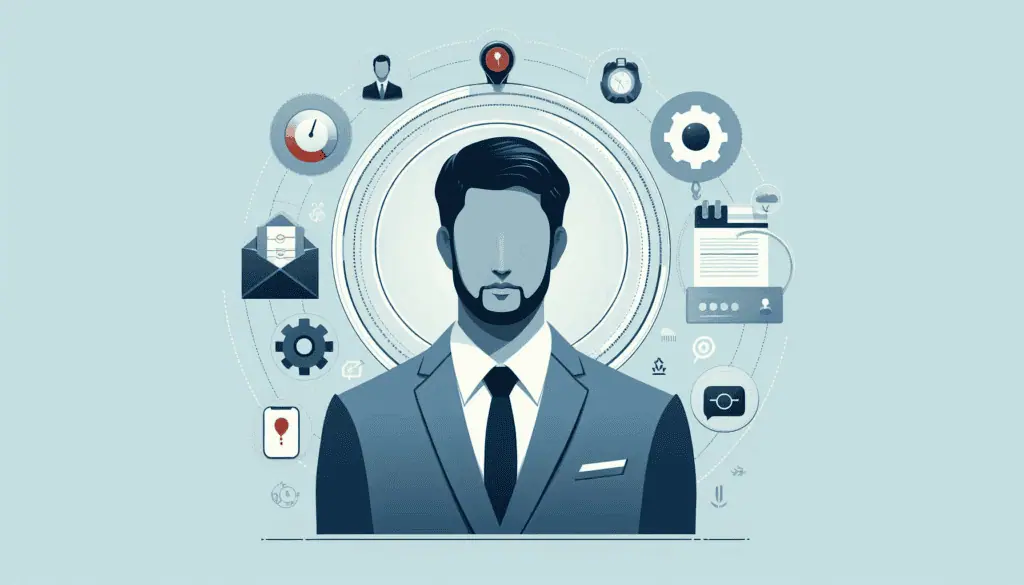
Personalizing Onboarding with AI Tools
AI extends beyond the recruiting process. It also impacts employee engagement and experience. AI tools can personalize onboarding processes, helping new employees integrate into the company culture more efficiently. These tools can serve as virtual assistants, providing quick answers to common questions and offering personalized tips and guidance.
Additionally, AI-driven surveys can continuously monitor employee engagement, defining areas of satisfaction and dissatisfaction. This ongoing employee feedback helps HR departments address issues and create a more engaged and productive environment.
Creating a Productive Work Environment with AI
Employee engagement is crucial for retaining top talent and fostering a productive work environment. AI-driven HR technology provides personalized experiences through self-service portals and virtual assistants. These tools enable employees to access information, manage benefits, and receive customized learning and career development recommendations. By catering to individual needs, AI helps create a more engaging and satisfying workplace.
These chatbots also use AI to help create a workspace where employees feel valued and supported, resulting in high employee retention rates and better overall performance.
Data-Driven Decision Making
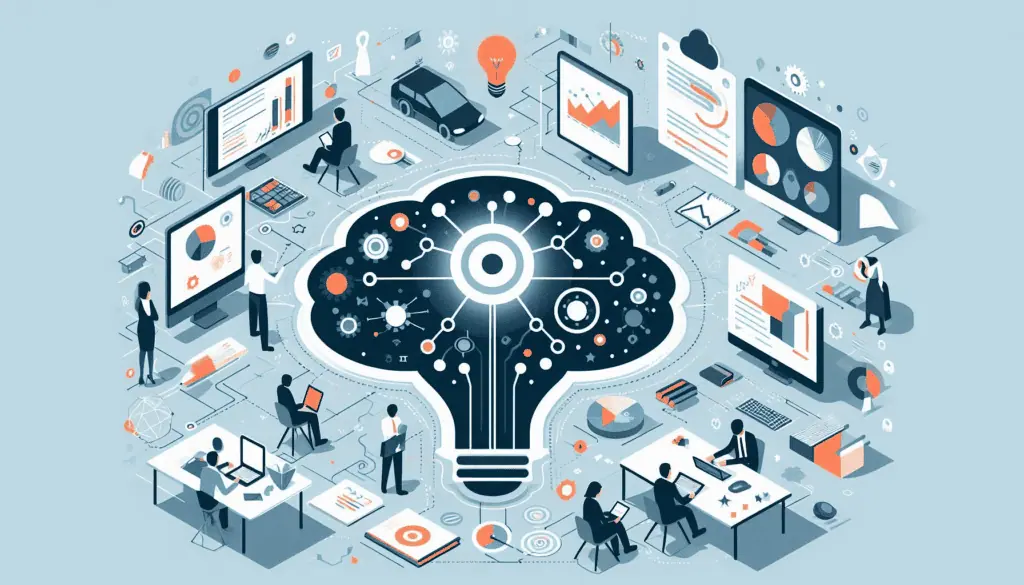
Leveraging AI Analytics for Deep Insights
The ability to make informed decisions is a game-changer for HR professionals. AI analytics tools provide deep insights into employee performance, engagement, and retention trends. By analyzing vast amounts of data, AI helps HR teams identify patterns and predict future outcomes, enabling proactive management strategies.
Data-Driven Decision-Making for Better Outcomes
This data-driven approach ensures that decisions are based on evidence, leading to better employee and organization outcomes. For example, predictive analytics can forecast turnover rates and identify factors contributing to employee dissatisfaction, allowing HR to address these issues before they lead to resignations. This proactive approach is essential for maintaining a stable and motivated workforce.
Enhancing Training and Development with AI Insights
AI-driven insights also help in developing targeted training and development programs. By understanding the skills and competencies lacking within the organization, HR can tailor learning initiatives to bridge these gaps, ultimately enhancing overall productivity and employee satisfaction.
Automating Administrative Tasks
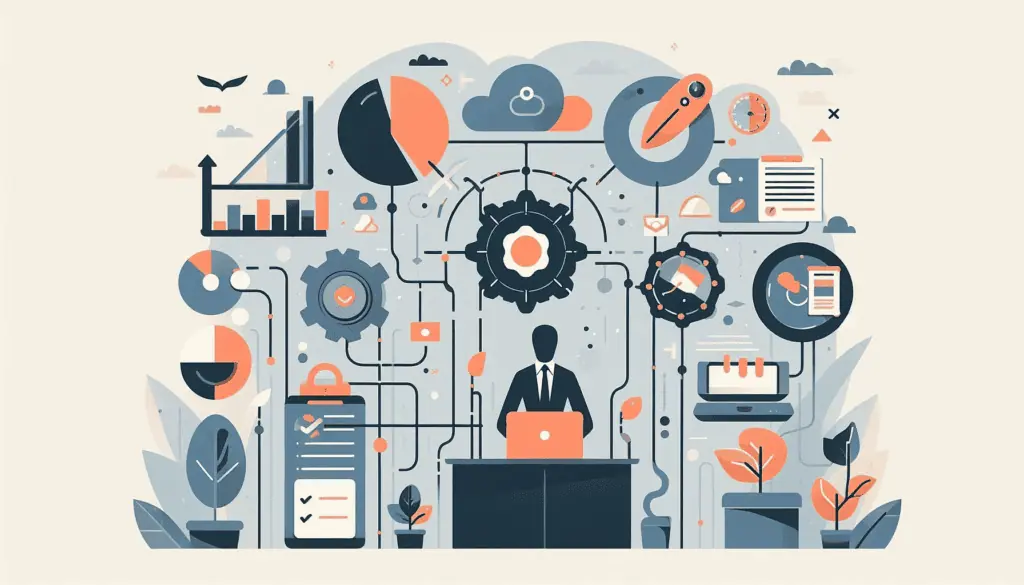
One of the most significant benefits of AI in HR is the automation of repetitive administrative tasks.
Automating Payroll and Administrative Tasks
AI streamlines payroll processing, attendance tracking, employee records management, and compliance reporting, reducing manual workload and minimizing errors. This automation allows HR professionals to focus on strategic initiatives that drive business growth.
For example, AI can process payroll accurately and efficiently, ensuring timely payments and reducing the risk of errors. By automating these tasks, AI frees Human Resources professionals to concentrate on activities that add more value to the organization, such as talent development and employee engagement.
Enhancing Efficiency in Scheduling and Data Management
AI can also automate the scheduling of interviews and meetings, track employee attendance and leave requests, and manage employee data updates. This increases efficiency and improves accuracy and compliance with organizational policies and regulations.
Ensuring Compliance and Security in HR Systems

Automating Compliance Tracking and Reporting
Maintaining compliance with labor laws and regulations is a complex and critical aspect of HR. AI helps automate compliance tracking, data management, and reporting, reducing the risk of non-compliance penalties.
For example, AI can continuously monitor compliance with various regulations, alerting Human Resources to potential issues before they escalate. This proactive approach helps organizations avoid costly fines and maintain a positive reputation.
Enhancing Data Security and Privacy
Moreover, robust AI systems ensure data security and privacy, safeguarding sensitive employee information from breaches and unauthorized access. This aspect of AI is crucial for building trust in the organization and ensuring that Human Resources practices meet regulatory standards.
AI systems can also automate the creation and filing of compliance reports, ensuring that all necessary documentation is up-to-date and accurate. This reduces human resources’ administrative burden and minimizes the risk of human error.
Cost Efficiency and Scalability

Achieving Cost Savings and Scalability using AI for HR
Implementing AI in Human Resources processes leads to significant cost savings. By reducing the need for manual labor and optimizing resource allocation, AI helps organizations operate more efficiently. Additionally, AI solutions are scalable, making them suitable for businesses of all sizes. Whether a small startup or a large enterprise, AI technology can adapt to your needs, providing customized solutions that grow with your company.
AI technologies offer cost-efficient solutions for Human Resources operations. Organizations can reduce operational costs and scale their HR functions by automating routine tasks and optimizing Human Resources processes. AI tools can handle a growing volume of HR activities without a proportional resource increase, making it easier for companies to expand and adapt to changing business needs.
Scalability is particularly important for companies experiencing rapid growth. AI systems can easily be scaled up to accommodate increasing employee and HR tasks, ensuring that human resources operations remain smooth and efficient.
Future Trends in AI and HR Technology
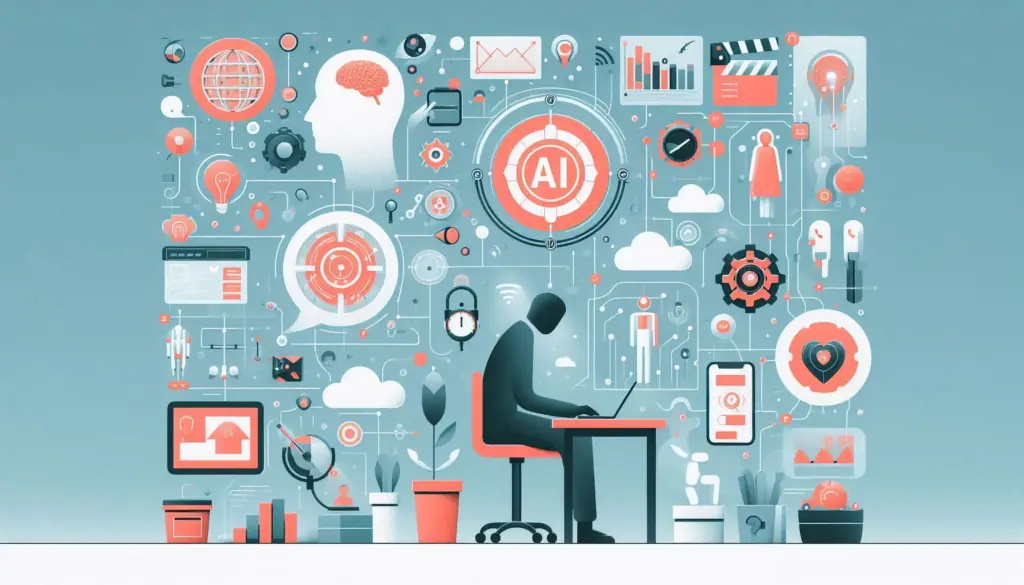
Continuous Advancements and Innovations
The future of AI in Human Resources is bright, with continuous advancements on the horizon. The innovation potential is limitless, from predictive analytics to advanced machine learning algorithms. Generative AI is particularly impactful, transforming Human Resources processes such as workforce management, capacity planning, recruitment, talent acquisition, and interview question generation. As AI technology evolves, it will continue transforming HR practices, making them more agile, data-driven, and employee-centric.
Staying Informed and Ready for Integration
HR leaders must stay informed about these trends and be ready to integrate new AI solutions to ensure organizational success. AI technology will offer even more sophisticated tools for talent management, employee engagement, and strategic decision-making as it evolves. By embracing these advancements, HR can continue to enhance its role within the organization, driving better outcomes for employees and the business.
Emerging Trends in AI for Human Resources
Emerging trends include using AI for personalized learning and development programs, real-time feedback systems, and advanced workforce planning tools. AI will also be crucial in enhancing diversity and inclusion initiatives by providing unbiased data-driven insights and recommendations.
Conclusion
Integrating AI in our Human Resources systems is not just a trend but a significant shift towards a more efficient, personalized, and secure workplace. By leveraging AI for HR technology, businesses can enhance recruitment processes, improve employee engagement, make data-driven decisions, and ensure compliance and security.
The story of Jenna and the example of Unilever illustrate the real-world impact of AI on HR. By integrating AI, companies can overcome common Human Resources challenges, streamline operations of the employee life cycle, and create a more dynamic and responsive Human Resources function.
HR leaders who embrace AI will be better equipped to overcome challenges, streamline operations, and create a dynamic and responsive HR function. Transforming HR through AI is essential for staying competitive in today’s fast-paced business environment. By leveraging AI and driving growth and innovation, the HR department can become a strategic partner.
Frequently Asked Questions (FAQ)
I’m a Data Enthusiast and Content Writer with a passion for helping people improve their lives through data analysis. I’m a self taught programmer and has a strong interest in artificial intelligence and natural language processing. I’m always learning and looking for new ways to use data to solve problems and improve businesses.

